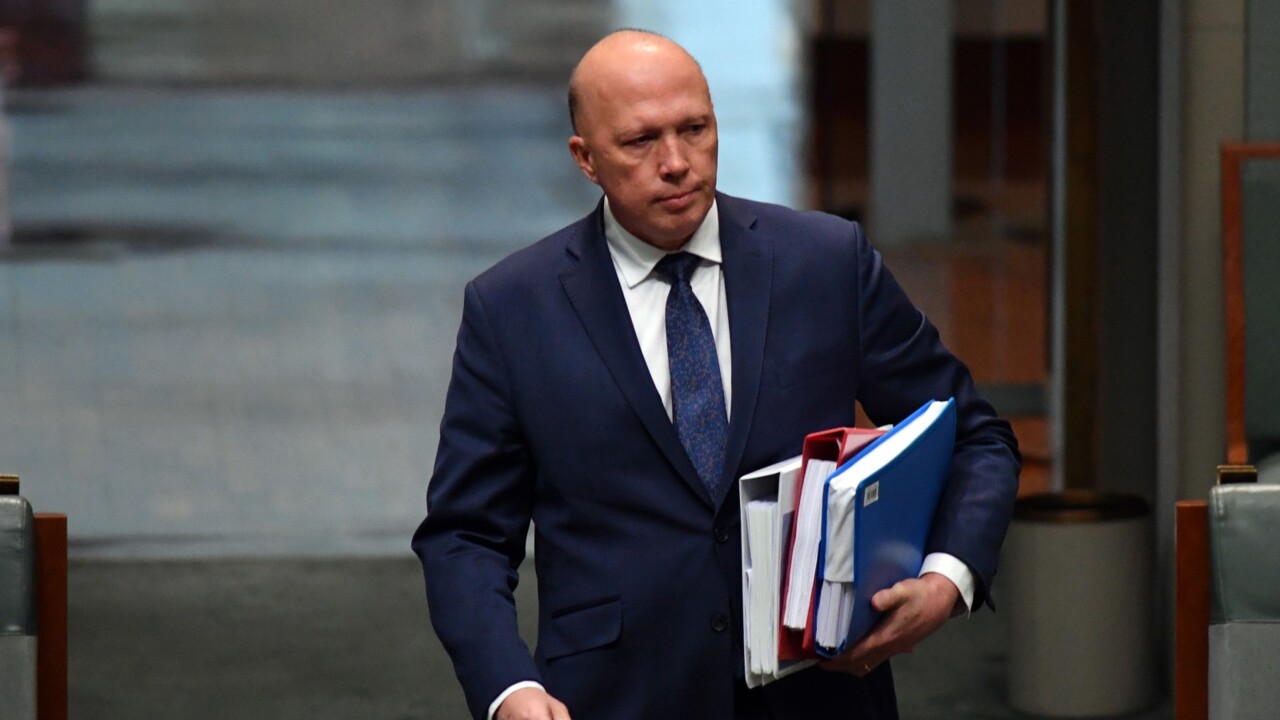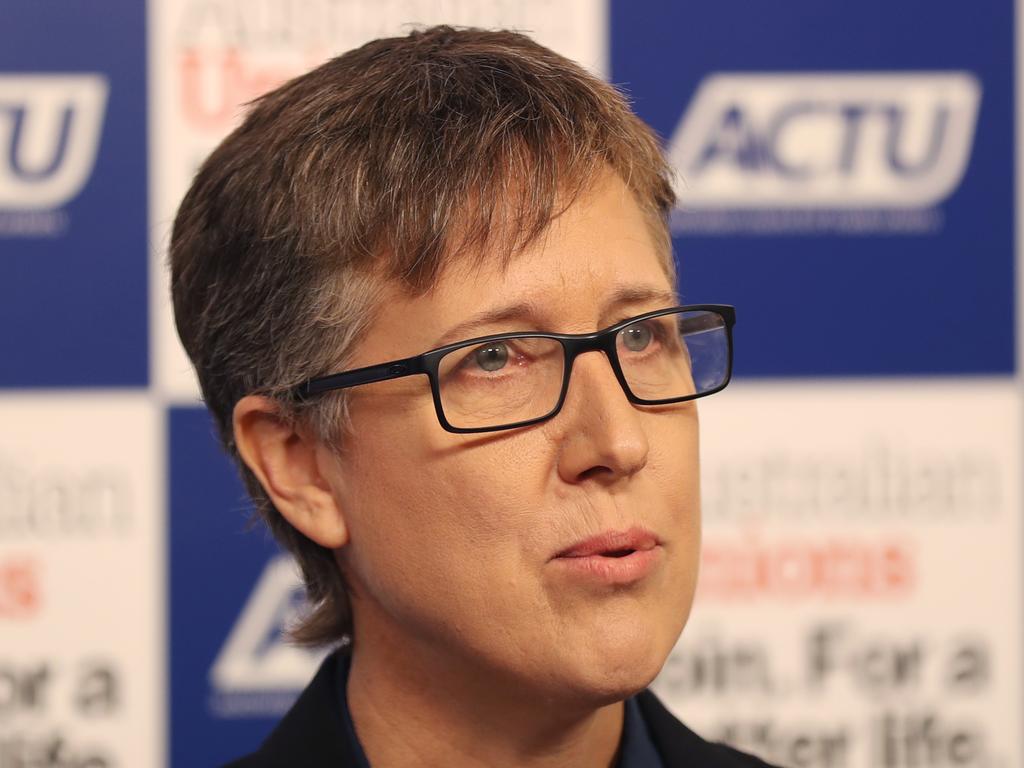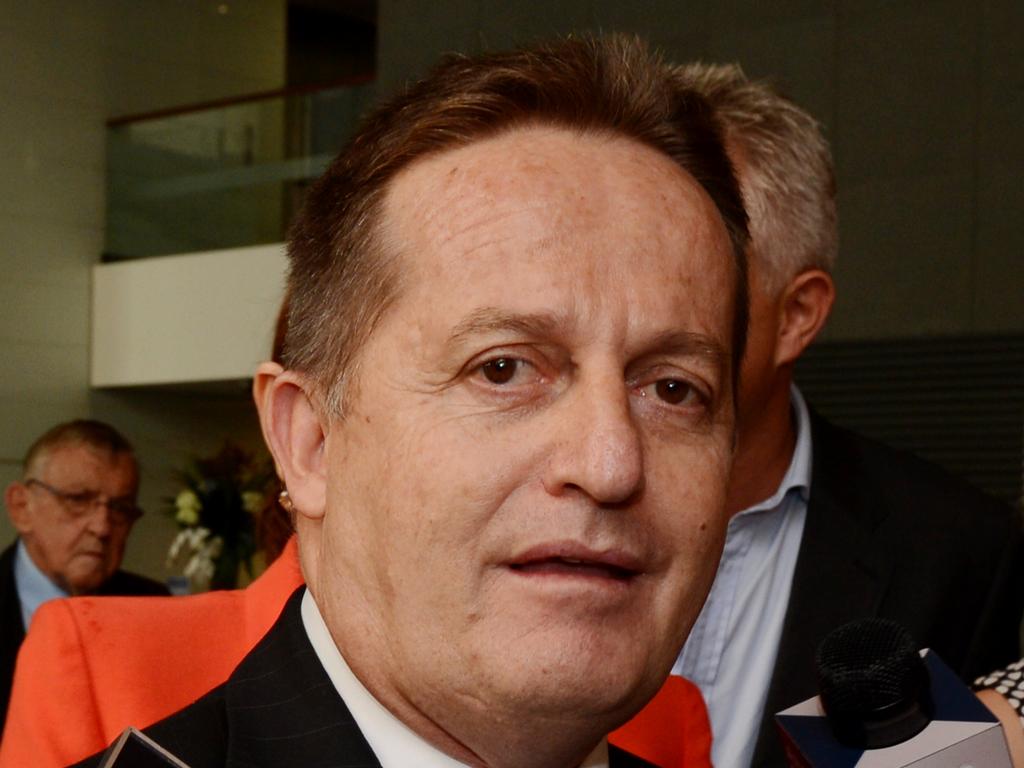ACTU still stuck on a tax and spend agenda for ALP

It should be no surprise that with Labor only months into government, the power that the trade union movement exerts over the party is becoming more apparent. Employment and Workplace Relations Minister Tony Burke is doing the bidding of the Maritime Union of Australia in its long-running dispute with tugboat operator Svitzer. Labor has signalled it will cancel the right of employers to terminate workplace agreements, strengthening the hand of union negotiators. The union has upped the ante saying it will mount an industrial campaign for above-inflation wage rises.
Meanwhile, the ACTU has struck a blow against the independence of the Reserve Bank, wanting to redefine its charter to use interest rates as a means to tame inflation. The ACTU’s plans are set out in a detailed paper that is part of a blueprint for action it will take to the upcoming jobs and skills summit. When taken with the hard-core social engineering being espoused by the Greens for higher welfare and increased taxes, there are clear danger signs of economic trouble ahead.

The ACTU has warned that dark economic clouds are gathering, partly because of a surge in inflation that is an obvious and likely temporary side effect of the pandemic. “But the storm clouds are also caused by central banks willing to risk a deliberate recession in their crusade against inflation,” the ACTU said. In the lead-up to the jobs summit, the ACTU “stresses the need to focus attention on the ultimate purpose of macro-economic management: to achieve and maintain genuine full employment, in which every willing Australian can quickly find and keep secure work with fair pay.” Left unsaid is the fact that unemployment is at a 50-year low and falling.
Whether or not the RBA has been too harsh in lifting rates after being criticised for acting too late is open to debate. But the ACTU’s prescription is not the answer. The ACTU argues interest rates are a blunt instrument that make all borrowing more expensive, without distinguishing whether supported spending is useful (such as real investments in supply chains, infrastructure, aged care and new housing) or wasteful and distorting (such as property or financial speculation). Unions want “targeted tax measures” to cool off aggregate demand pressures in “fairer ways”. These include an “excess profits levy” on energy companies, taxes to discourage distributions of dividends and share repurchases by Australian corporations, and cancelling the planned stage three tax cuts, which the ACTU says will benefit only higher-income households and exacerbate income inequality and inflationary pressures.

It says wages must keep up with inflation, and social benefits and income supports (such as JobSeeker, the age pension and child benefits) must be fully and promptly indexed to the actual consumer prices paid by recipients. Energy and gas prices should be regulated by government. There should be expanded public housing, rent controls and regulated housing credit. The ACTU wants government to regulate labour markets so real wages rise in tandem with labour productivity and support the maintenance of full employment. If adopted, the ACTU prescription would have devastating consequences. Opposition Treasury spokesman Angus Taylor is correct when he says heavy-handed interventions will cripple Australian businesses and send the economy backwards. The union movement is entitled to state its mind, but business groups must be prepared to defend an open market process that delivers better outcomes for everyone. The challenge is for the Albanese government to distance itself from the demands of its trade union sponsors. The jobs summit will be a crucial test on whether the new government really is capable of delivering consensus outcomes rather than the sort of class-war agenda that was unpalatable to voters and would be diabolical for living standards if they were ever introduced.






Anthony Albanese has been at pains to stress that Labor will honour in government the commitments it made during the election campaign. This was the basis on which Labor stuck to its climate change target of 43 per cent against demands for more from the Greens and teal independents. And it is why the Prime Minister must quickly reject demands from the ACTU and Greens for Labor to scrap the legislated stage three tax cuts for medium and high-wage earners. There is no doubt that high inflation, rising interest rates and cost-of-living pressures are the key challenges for Jim Chalmers in framing an October budget. But he must not be distracted by the wish lists of social intervention and class-war posturing being marshalled by unions in a time of rising economic uncertainty.